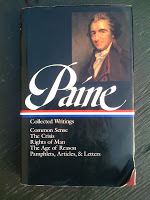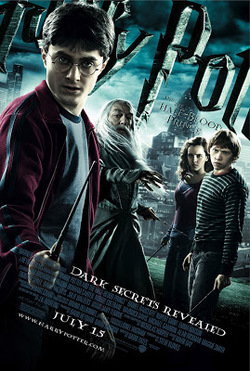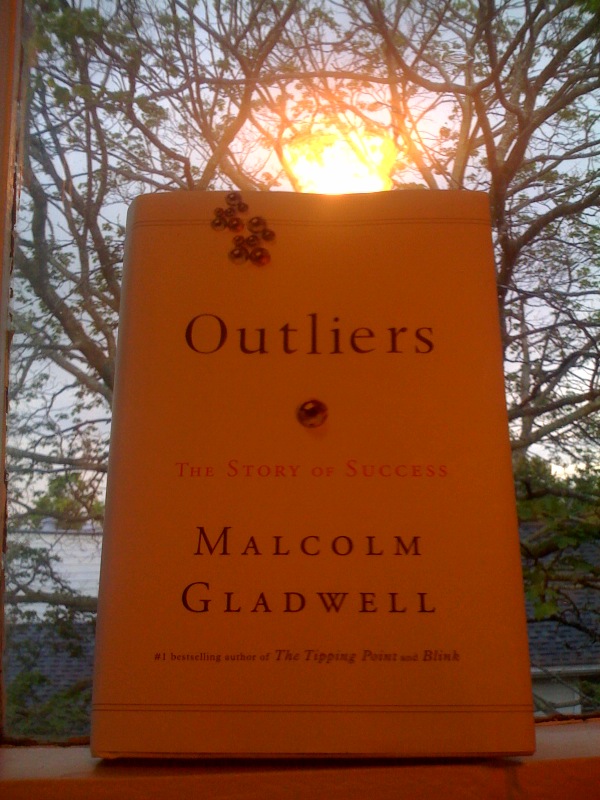| Numinous The Music of Joseph C. Phillips Jr. |
The Numinosum Blog
|
NPR's Fresh Air this evening was a tribute to Merce Cunningham, who many of you know died on Sunday. The show featured a rebroadcast of a 1985 interview with Cunningham as well as another discussion from 1982 with his life partner and collaborator John Cage. Both talks were interesting, but for me listening to John Cage, with his warm tone and wise avuncular demeanor, speak about his process was mesmerizing (I even had my own driveway moment, well I was actually standing by my door ready to leave when I stopped to listen to the "Zen Master of Music"). Also just as I was listening to the subtle differences in the 1982 Terry Gross voice as compared to now, I was struck how that act of noticing (paying attention) mirrored some of what Cage was actually talking about at that moment! As always when listening to Cage, I find his thoughts fascinating and always contemplative.
POSTED BY NUMINOUS AT 7:57 PM
0 Comments
 I just finished my third summer read Common Sense by Thomas Paine, the book I was reading before getting sidetracked with Malcolm Gladwell's Outliers. Over the past year or so, I've been researching Thomas Paine for an upcoming dance collaboration between choreographer Edisa Weeks and her company Delirious Dances and myself and my group Numinous. The new work will be based on the writings of Thomas Paine (the "forgotten Founding Father") and will be part of a larger symposium we are planning on the meaning of democracy and freedom in today's world, particularly here in the United States. The premiere will be taking place in June 2010 here in New York City and I will be blogging more about the project in the weeks and months to come. I suggested Thomas Paine to Edisa as a subject for collaboration but I'll admit at that time my knowledge of him was minimal beyond the basic outline of his life and some of his well-known aphorisms and quotes (for example, "these are the times that try men's souls" from American Crisis). But once we decided to do the project, I began reading up on his life and role in the founding of the United States, being particularly fascinated by the account of his legacy in Harvey Kaye's book Thomas Paine and the Promise of America. Having been sufficiently maligned over the centuries by many specious rumors and writings especially after speaking out about religion and politics in The Age of Reason, today when people speak of the Founding Fathers, rarely is there mention of Thomas Paine and the effect this Briton and his thought had on the movement toward independence and democracy in the middle 18th century. And those thoughts, a call to action so to speak, are crystallized in Common Sense. Common Sense is an open letter "addressed to the inhabitants of America." Reading it, my first thoughts were, had he lived today, Thomas Paine would definitely be a blogger of the first order. He gives passionate and reasoned arguments for why America should not be a colony of Britain, how a monarchy or any dependency can never achieve it's full potential, and why action (both political and military) is sometimes necessary in achieving and securing freedom. But one thing I was struck with is how in February of 1776 (5 months before the Declaration of Independence) Paine was able to articulate an impressively prescient vision of what America could possibly become ("we have every opportunity and every encouragement before us, to form the noblest purest constitution on the face of the earth. We have it in our power to begin the world over again"). And to the modern day constructionists that say all Founding Fathers felt America is "God's country" and religious thought is essential to governmental action, his answer to a long-forgotten Quaker rebuttal to not fight for independence should give ample pause for thought: "And here without anger or resentment I bid you farewell. Sincerely wishing, that as men and christians, ye may always fully and uninterruptedly enjoy every civil and religious right; and be, in your turn, the means of securing it to others; but that the example which ye have unwisely set, of mingling religion with politics, may be disavowed and reprobated by every inhabitant of AMERICA." With hindsight, the correct course of action to independence seems preordained but I'm intrigued by how even something as monumentally important (and again with hindsight, obvious) as independence and freedom, was viewed by some as the wrong path to undertake. It is a helpful lesson of history to know there will always be (and should be) naysayers and doubters; that in a democracy questioning and debate is healthy and needed. But that we should be wary of all those "interested men, who are not to be trusted; weak men, who cannot see; prejudiced men, who will not see" and who will hold up and block progress for everyone because of parochial concerns (something the politicians in the recent imbroglio in the New York State Senate should have remembered). With Common Sense, Thomas Paine calls to action all citizens to be active not only in the discussion of democracy and freedom, but in the maintenance of it as well (although, I'm not sure he was meaning for women, slaves, or Native Americans but I'll give him the benefit of the doubt with the spirit of his words). Next up for Summer Read #4: The Invention of Hugo Cabret by Brian Selznick POSTED BY NUMINOUS AT 1:53 PM Yesterday I read Nate Chinen's posting about this year's Chamber Music America New Jazz Works commissioning program and was planning to write a response, but then read an intriguing answer on NPR's A Blog Supreme and I wanted to take up one of the reactions posted on A Blog Supreme:
Someone must have something to say about the fact that none of the [Chamber Music America New Jazz Works] recipients this year are black. And that only a small handful in the past have been either. I by no means intend to suggest that the CMA is racist; if anything, I suspect it's a question of demographics in who's applying for these grants. (As a side note, many of the artists selected this year -- Rez Abbasi, Rudresh Mahanthappa, Jason Kao Hwang and Amir ElSaffar among them -- are from ethnic groups underrepresented in jazz.) This, of course, taps into a larger question about the paths that African Americans are taking in jazz and improvised music these days, and how those career trajectories may differ from the majority of artists who find themselves inspired by abstract expressionism or studying the hand drums of Central Asia or whatever. I am not qualified to elaborate on this; I hope someone else is. While I certainly agree that the reasons for a lack of African-American grantees was probably more to do with who applied than anything else, the larger question posed of "the paths that African Americans are taking in jazz and improvised music these days" is a bit like why there are so few African-Americans in professional baseball after an honorable and distinguished history in the sport. Just as many black kids who might have picked baseball as their sport of choice now gravitate to basketball or football, I believe that many young African-American musicians will tend not toward jazz but to popular forms (rap, hip-hop, or nu soul), if they consider music at all, because they seem most validated and visible in terms of a broader cultural (and possible financial) relevance and sometimes as an acceptance in the black community as well. Not that there aren't black musicians interested in abstract expressionism or Eastern cultures or rock or any other art form not typically considered black. Today, as there have almost always been, many African-Americans interested in traditionally non-black musical forms, both serious and arty and more popular (Earl Greyhound, TV on the Radio, Imani Winds, George Walker, Cowboy Troy, Darius Rucker, and I'll include myself in this list). Maybe a problem is how those musicians (and others) are valued or perceived both in the general and black public and press, not on the quality of their work. An on-going dialogue 'Ain't But a Few of Us: Black Jazz Writers Tell Their Story at The Independent Ear discusses the lack of coverage of black serious music by even the mainstream black press but I think it also focuses a light on what all press in general deem important, worth covering or probably more accurately, what the editors believe the readers want to read (actually A Blog Supreme's reaction #4 hints at this dilemma as well). With choice of what is covered denotes the perception of "importance" or "worthiness" and I think writer John Murph put it cogently for some African-American musicians in an interview on The Independent Ear when he says, "...there’s the whole idea of what is deemed more artistically valid when it comes to jazz artists incorporating contemporary pop music. I notice a certain disdain when some black jazz artists channel R&B, funk, and hip-hop, while their white contemporaries get kudos for giving makeovers to the likes of Radiohead, Nick Drake, and Bjork." Is Brad Mehldau better (more valid) than Jason Moran because the former covers songs from critically acclaimed alt-rock band Radiohead and the latter covered a song from proto-hiphop/electronica Afrika Bambaataa? This is of course a silly and wrong question (of course, the jazzers will agree that both are of high artistic merit). But how each artist is perceived by the cultural tastemakers, gatekeepers, and mavens, I think is a more interesting question. Going back to Nate Chinen and A Blog Supreme's musings on the "grant monsters", those artists that are "grant-ready" who consistently get the funding for their projects, the more substantial question is how those grant monster's 'worth' is perceived by winning grants? My guess is that the perception of them changes when they win (and subsequently, those that don't win are perceived less favorably). Here I think of Steve Reich and his many years as Pulitzer-Prize runner-up. For me and most people, and probably to him, I don't think it mattered that he hadn't won. Disappointing, maybe. Affecting his own worth in new music circles, no. But once he did win, I think there was a subtle shift in the perception of him in others. Rightly or wrongly, award or grant winner (and any buzz surrounding it) can represent to some an air of officialness and validation. Then it DOES affect the future opportunities that musician will receive (much as Malcolm Gladwell talks about early, unseen advantages building up through time, in his book, Outliers). David Lang in an interview on NewMusicBox and Counterstream Radio humorously and candidly talks about this shift in the perceptions of him among others after winning the Pulitzer Prize last year (he even, quite honestly, talks about how he isn't immune himself to this perception game). Is Alfred Hitchcock any less worthy not winning an Oscar? John Stockton and Karl Malone in not winning a NBA championship? Carl Yaztrzemski, in not a World Series? The question isn't on the actual quality of their work, but rightly or wrongly, on the perception of others whether that work IS quality, based on what someone "official" says is quality or valid. And whether something is perceived as quality hits on the head what I think because since the majority of tastemakers, gatekeepers, mavens are not black (or women), and often come from different socio-economic and educational backgrounds and experiences, maybe sometimes African-American musicians (or women) might not be as fully understood, valued, or appreciated as someone coming from the same background (see John Murph quote above). I think of some of the reactions to the OJ Simpson verdict in the different communities (for the record, I think he was guilty but I also understand the other side quite well), the reaction to Judge Sotomeyer's "wise Latina" remark, and of course the recent brouhaha over the Harvard Professor Henry Louis Gates arrest, that all hinge on these different perceptions and thereby hindering full understanding of the other side (the New York Times Room for Debate blog has some interesting thoughts in the Professor Gates arrest as how the conscious and unconscious perceptions of both the professor and the officer contributed to the situation; like one of the experts, I, too have my own personal stories of questioning looks, stoppages, etc. from police and others). The real question though is can we acknowledge our limitations with own 'cone of experiences' and have empathy and understanding on all sides? I would say, absolutely. POSTED BY NUMINOUS AT 6:40 PM One of my summer projects this year is complete: building a fence and gate. Last summer I put up pre-made shadow-box fence panels on one side of the yard and while I didn't have to actually build the fence, I did have to dig and put up all of the posts and then set the panels in place. Since that was the first time I've ever done any building like that, it was a challenge (especially since I was doing it all alone). In addition to the pre-made panels, I also made a small gate from scratch. As per my tendency, beforehand I researched how to put up posts and how to build gates and fences, and constantly referred to websites, my building bible (my trusty book, Home Depot's Patios and Landscape Construction 1-2-3), and all of my measurements and plans. Of course things got better and better as I put up each post and panel. So much so that it got to a point I was finding myself using the book/websites less and less and relying on my own plans, intuition, and judgement; deviating from the plans based on what the situation dictated. And I must say, it all came out pretty well in the end.
This summer, I decided for another part of the yard to build a fence and gate completely from scratch as the old gate and fence were termite riddled and literally falling off the hinges. Again, I researched and consulted various websites and my "bible", but found with all of my building experience from the previous summer, I really only needed my detailed plans, which I was confident enough to improvise upon as necessary once work started. Unlike last year, this summer during the deconstruction of the old fence and posts and construction of the new fence and gate, despite being a lot work (and again working alone), I found a calmness of mind during the process. And I was reminded of how similar building a fence and gate is to building a musical composition: planning the design, trying to balance an economy of form, function, and aesthetics; gathering materials; once you start building you need a special attention and focus to details which are important because the slightest miscalculation on any one part can lead to all being out of alignment; working through frustration, fatigue, set-backs and obstacles, especially as you get closer to finishing; joy and triumph (and relief) upon completion. As I'm writing various upcoming compositions for Numinous and other groups, I want to keep this summer's fence building lessons in mind: while it is important to be prepared, sometimes the greatest plan in your mind wants to be something else once it leaves your brain and meets reality; the challenge is to be patient and let it become what it will and hopefully it will all come out plumb. POSTED BY NUMINOUS AT 3:00 PM Here's a poem from Percy Shelley that is apt for today's anniversary. Note: although I use it in reference to a photo of birds I saw, this poem is the origin of the title to the first part of Vipassana.
Art thou pale for weariness Of climbing heaven and gazing on the earth, Wandering companionless Among the stars that have a different birth, And ever changing, like a joyless eye That finds no object worth its constancy? POSTED BY NUMINOUS AT 4:45 PM  Went to see Harry Potter and the Half-Blood Prince yesterday (no, not the midnight showing-I don't do that anymore...). And while I have eagerly read and loved the books, I have been ambivalent about seeing the movies. In fact this was the first of the movies I have seen in the theatre and have only seen a couple of the previous films adaptations, well after their initial theatrical release. I think one reason I'm not so excited about the films is that they only hint at the fullness of the world JK Rowling created. Yes, film is a different medium and SHOULD be different than the books, but I often find myself missing the subtle nuances that are in the book. And sometimes, because there is only so much time to show things, you get (in my opinion) awkward breaks or gaps (I found that in all of the movies I've seen but an example in Half-Blood Prince is the scene where for the first time in the movie Dumbledore and Harry are talking about the recalled memories of Tom Riddle; this scene seemed to me to come about unprepared). Don't get me wrong, I loved seeing how the director and creators of the film translate Rowling's words to visual images: the Qudditich scenes in Half-Blood Prince were quite thrilling and exciting and there are many beautifully composed shots, even some of the casual, quiet moments (a shot of Harry, Hermione, Ron, and Jenny just sitting, for example). I really did enjoy the movie but I also felt it more of an expositional penultimate place-holder for the ultimate finish in the next two planned movies of Harry Potter and the Deathly Hallows (I felt the same way after seeing Star Wars II: Attack of the Clones, it was all just a lead up to revealing Darth Vader in The Revenge of the Sith). It was also exciting to see that one of my former students was one of the 3D artists for Half-Blood Prince. When her name rolled across the credits at the end, I was happy and proud to know that she has done so well for herself. One other thought after seeing the movie was that it made me realize once more what a wonderful creation JK Rowling came up with when she brought Harry Potter into the world. The books (and many parts of the movie) are such a richly detailed world, full of mystery, humor, fun, and tragedy, it makes me marvel at her imaginative acumen. In many ways, the epic sweep of the books create a totality that mimics the best of all myths and stories. In fact from the lightness of the first two books to the change to a darker, more ominous tone starting with The Prisoner of Azkaban, but more so in Goblet of Fire and the later books chronicling the "dark times", Harry Potter's journey reminds me of the classic enlightenment stories of so many cultures throughout the world. And that kind of creativity is very inspiring to me. Laurie Anderson in an interview said, "I feel that [a] work has really succeeded when somebody says, 'I saw or heard your piece and I got so many ideas from it'" and that good art work makes you "want to jump up and get out of there" and create something yourself. JK Rowling's Harry Potter is a reminder to me to go out and create my own musical worlds equally enriched, layered, textured, and memorable. POSTED BY NUMINOUS AT 12:00 PM Here are my beginning of summer 'CDs I'm listening to':
Earl Greyhound (Soft Targets) Phil Kline with Lionheart and Ethel (John the Revelator) Dallas Wind Symphony (Lincolnshire Posy, Percy Grainger's Music for Band) Bill Banfield Band (Spring Forward) TV on the Radio (Dear Science) David Lang with Theatre of Voices and Ars Nova Copenhagen (The Little Match Girl Passion) Hans Rott (Symphony No. 1 and Orchestral Works) Leela James (A Change is Gonna Come and Let's Do It Again) Janelle Monáe (Metropolis: The Chase Suite, Special Edition) I picked these CDs because (1) I know of the artist and was interested in hearing their new work (David Lang, Phil Kline), (2) I know of the artist but never actually heard them (Earl Greyhound, TV on the Radio), (3) I never heard of the artist before but decided to try after reading about them (Leela James, Janelle Monáe, Hans Rott), and (4) for no particular reason (Dallas Wind Symphony, Bill Banfield). POSTED BY NUMINOUS AT 8:42 AM Came across these two articles yesterday about Michael Jackson: while this Salon article is mostly about celebrity (Michael and Sarah Palin), the second a Village Voice article by Greg Tate about Michael's influence and legacy in the African-American community (thanks to Bold as Love for bringing the VV article to my attention).
POSTED BY NUMINOUS AT 7:21 AM I had just started to read another book, when I was given Malcolm Gladwell's Outliers last week. Wanting to read it when it came out last year, my continually growing stack of "books to read" prevented me from adding it to the pile. So when I was given the book, I decided I would jump in and put the other book "on hold". I have not read Blink, Gladwell's second book, but I did read his first, The Tipping Point. And while I found myself engaged in the stories he presented in a very informal, breezy manner, I didn't always buy into the conclusions he came up with. Sometimes there are just too many variables to a situation to give a definite or even general pronouncement as he sometimes does. But whether I agreed with him or not, I found The Tipping Point thought-provoking and captivating reading (the story about Paul Reverie's ride and how the "other rider" that night generated little response was a classic) and hoped for the same with Outliers.
Before Outliers was published back in the fall of 2008, as always, all of the "cool" people were talking about it in newspapers, magazines, and on-line reviews and discussions--the buzz of Gladwell was in full force. I did read a little about the book back then so I did have an idea what to expect from the book when I started reading last week. But I definitely didn't expect my initial reaction as I began reading the first couple of chapters: anger. The first chapters in Part One: Opportunities, The Matthew Effect (about hockey stars in Canada being born ONLY in January, February, and March) and The 10,000 Hour Rule (the aforementioned amount of time needed to complete mastery of a subject) seem to offer a deterministic attitude toward success, and if you don't fit in, then you won't be successful no matter what you do; your fate is decided! Now Gladwell, does not really say this. He just gives his conclusions from the available data, but this is the interpretation I came away with. When he says, "We are too much in awe of those who succeed and far too dismissive of those who fail...we overlook just how large a role we all play in determining who makes it and who doesn't" (pg. 32-33) here is where I think my anger came from. Not that there are successful people and some are and some aren't, it is what happens to those NOT considered successful and how they are seen/treated as just not working hard enough, or not talented enough, or just not having what it takes. Reading the rest of Part One, The Trouble with Geniuses (does being really smart convey that much of an advantage?) and The Three Lessons of Joe Flom (how being born in 1930, Jewish, and a practicing lawyer conveyed a opportunity in corporate law in the 1970's and 80's), I was reminded of The Beak of the Finch by Jonathan Weiner, one of my favorite all-time books. The Beak of the Finch documents, through the work of scientists Peter and Rosemary Grant, how Darwin's theory of evolution is playing out in real and demonstrative ways in finches on the Galapagos Islands. One thing I remember from the book, was how the different beaks of the finches all are useful in different ways (one type might be good for opening hard shell nuts and not for soft shells while another is the opposite). And depending on all the interconnected conditions on the island (weather, nut production, predators, etc.), one type of finch may thrive and another won't. One set of skills leads to an advantage over another set, simply because of chance and circumstance. And here's an important point, there is no inherently "good" type of beak to have because you change the conditions (which does happen, with say a drought) and another type of finch becomes king. This is very similar to Joe Flom, who had certain skills which did not give him an advantage in one kind of world (1960's New York City corporate law), with the change of conditions his same skills now became very valuable in the new world. While the successful generally do have to have the talent and ability (you have to be "talented enough", "smart enough"), the path to success often follows unseen advantages. Here is a wonderful interview with composer David Lang discussing how the Pulitzer Prize, which he won in 2008, has brought him opportunities he never would have had pre-Prize (listen for the funny and a bit discouraging story about wanting to write a piece for 1000 screamers in the street). And for me the interesting thing is he says he is no better composer now than before the Prize, but post-Prize others (critics, funders, orchestras, etc.) treat him differently; he is now a "serious" composer, more worthy of attention and opportunity! So for David Lang, his conditions changed, not who he is (although you could argue that now that he's won, he has changed), and so now he is a success (as if he wasn't before!). There is a scene in Spike Lee's 1992 movie Malcolm X, when the young Malcolm, voted the class president by his white classmates, talks with his teacher about his desire to be a lawyer when he grows up. The teacher tells him he is good with his hands, maybe he should be a carpenter; a lawyer is no profession of a 'colored' boy. Outliers reminded me all of those who had similar conversations that discouraged or frustrated their possible achievement. What about those who didn't have the advantages, which in turn lead to opportunities, which lead to more opportunities, which can lead to success? Are they failures? Gladwell does lament what kind of world could we have if everyone could have equal chance for success. How many more Steve Jobs or Bill Gates would be out there, given the right stimulus, the right development, the right opportunities to "learn how to be an expert". It doesn't mean everyone will succeed in being Bill Gates, it does mean we should create the atmosphere of the possible. And so as I began reading Part Two: Legacy, I became less angry as Gladwell begins to tell stories of what can be done to lead to success despite the obstacles and disadvantages. Harlan, Kentucky (how to end a generational cycle of violence), The Ethnic Theory of Plane Crashes (how cultural differences can be overcome), Rice Paddies and Math Tests (how success in math can be taught and is not preordained), Marita's Bargain (once middle schoolers humble life but outsized effort), and A Jamaican Story (the story of the Gladwell Family beginnings) were all more of a hopeful tone, showing what can be done to overcome fate and circumstances. Here's a question I had throughout as I was reading, what about those people who are outliers to the outliers? What about those Canadian hockey all-stars NOT born in January, February, March? The low-income student with the terrible home life who nonetheless rises above the cycle of poverty? What drives those people to succeed against their circumstances, what help along the way do they receive? I thought of the movie Gattaca, where the Ethan Hawkes character, in a near-future world, has the attitude, desire and ability to be an astronaut despite not being of the 'right' genetic make-up. But it isn't until he gets help at the end, despite his talent and effort, that he is able to transcend into achieving his ultimate success. While Outliers has given me much to think about, like The Tipping Point, I do not always agree with Gladwell's conclusions. But one thing is clear from reading the book: while luck and fortune may favor the prepared, opportunity is a barn raised by many hands. And despite the commonly held (American) myth of the self-made person, "no one--not rock stars, not professional athletes, not software billionaires, and not even geniuses--ever makes it alone." (pg. 115) Something to always remember. POSTED BY NUMINOUS AT 12:21 PM A few weeks ago I was interviewed for Texas Public Radio by the latest maven in the new music world, John Clare. His show, Classical Spotlight, includes interviews and recordings from some of the top performers, composers, and conductors in classical and new music today.
My interview, along with audio from Vipassana, will be broadcast tomorrow July 3rd at 3PM Eastern (2PM Central) on KPAC in San Antonio as part of John Clare's July 4th special on American music. If you miss it tomorrow, then you can listen to the archive on the Classical Spotlight website or check out their blog. It was a fun time and I'm honored John chose me to be a guest for his July 4th special. I hope you get a chance to listen. POSTED BY NUMINOUS AT 1:51 PM Has it really been THIRTY years since the Sony Walkman?!? I didn't own one until years later but remember coveting the Walkman of my early-adopter friends. Who didn't want to be the one everyone looked at when they walked down the street with those large headphones and the Walkman clipped to the belt? I wanted to be one of those people who could tune out and live in my own world of music as I walked down the street. And years later when the smaller Super Walkman came out ("we can build it better than before: better, stronger, faster") it seemed that things couldn't get any better. This kid doesn't seem to understand how rare and cool the Walkman was back in the day! And like those first weeks of the iPod and iPhone, whose fleeting white earbud sightings on the subway or in the local coffee shop were exotic and mysterious (I only HEARD about people with them, I never knew anyone myself that had one-much like UFO sighters and people who go on Jerry Springer) having a Walkman, especially in the early days, meant you were part of the illuminati: the cool and glamorous people. Everyone else either wanted one or still played 45's on GIGANTIC console stereos at home.
POSTED BY NUMINOUS AT 4:33 PM |
The NuminosumTo all things that create a sense of wonder and beauty that inspires and enlightens. Categories
All
|
Thanks and credit to all the original photos on this website to: David Andrako, Concrete Temple Theatre, Marcy Begian, Mark Elzey, Ed Lefkowicz, Donald Martinez, Kimberly McCollum, Geoff Ogle, Joseph C. Phillips Jr., Daniel Wolf-courtesy of Roulette, Andrew Robertson, Viscena Photography, Jennifer Kang, Carolyn Wolf, Mark Elzey, Karen Wise, Numinosito. The Numinous Changing Same album design artwork by DM Stith. The Numinous The Grey Land album design and artwork by Brock Lefferts. Contact for photo credit and information on specific images.





 RSS Feed
RSS Feed